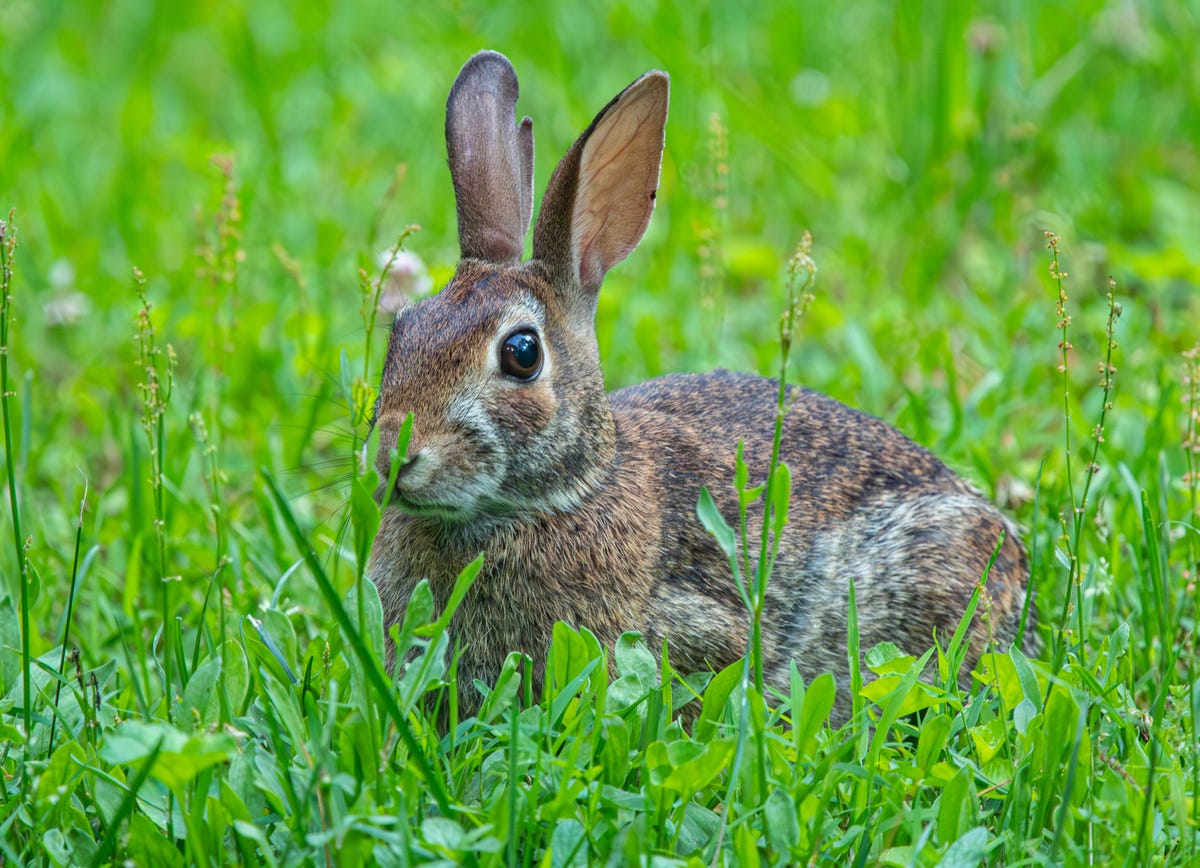Why do rabbits sleep with their eyes open?

Rabbits are prey animals, and as such, they have evolved a set of behaviors and adaptations to survive in the wild. One of the most crucial aspects of their survival strategy is remaining vigilant to potential threats.
Unlike predators, prey animals cannot afford to let their guard down completely, even during sleep. Sleeping with their eyes open allows rabbits to stay alert to their surroundings, ready to detect the slightest sign of danger and make a quick escape if needed.
Peripheral Vision and 360-Degree Awareness
Rabbits possess large eyes positioned on the sides of their heads, providing them with a wide field of view. This unique placement of their eyes allows for excellent peripheral vision, enabling them to detect movement and potential predators from almost any angle.
Rabbits also possess a nictitate membrane, or third eyelid. The nictitating membrane, derived from the Latin word “nictare“, meaning to blink, serves as a protective and moisturizing third eyelid found in certain animals. This translucent or transparent membrane can be drawn across the eye from the inner corner, known as the medial canthus, to safeguard and hydrate the eye while preserving vision.
By sleeping with their eyes open, rabbits maintain a level of 360-degree awareness, enhancing their ability to monitor their environment and react swiftly to any perceived threat.
Trust and Comfort in the Environment
While the open-eyed sleep of rabbits may be rooted in their survival instincts, it also reflects their level of trust and comfort in their surroundings. When rabbits feel secure in their environment, they may sleep with their eyes open as a sign of relaxation. This behavior is often observed in domesticated rabbits that have acclimated to a safe and nurturing home.
Adaptations to Living in Groups
In their natural habitats, rabbits frequently form colonies or groups, a social structure that fosters communal living and shared responsibilities. Within these groups, the collective vigilance of individuals plays an important role in detecting and responding to potential threats.
Rabbits in wild colonies exhibit a tendency to sleep with their eyes open, a practice that serves the greater good of the group. While certain members rest, others remain on high alert, scanning the surroundings for any signs of danger.
By taking turns in maintaining watchfulness, rabbits demonstrate an innate understanding of the importance of collective security and survival in their dynamic wilderness environment.
Rapid Response to Danger
The ability to wake up quickly and respond to danger is crucial for a prey animal’s survival. Rabbits, by sleeping with their eyes open, can instantly assess their surroundings and react to potential threats without the delay of waking from a deep sleep. This rapid response is an evolutionary advantage that has been honed over generations, allowing rabbits to navigate their natural habitats with heightened awareness.
Health and Well-being
Observing a rabbit sleeping with its eyes open can also provide insights into its overall health and well-being. When a rabbit is unwell or stressed, it may be more likely to close its eyes while resting. Therefore, the open-eyed sleep of a rabbit can serve as a reassuring indicator of its comfort and contentment, signaling to caregivers that the rabbit feels secure in its environment.
Understanding and Respecting Rabbit Behavior
This behavior is deeply rooted in their evolutionary history and serves multiple purposes related to survival and well-being. As caretakers of these endearing creatures, understanding and respecting their natural behaviors is essential. By creating environments that prioritize their safety, security, and comfort, we can ensure that rabbits thrive in both the wild and domestic settings.










